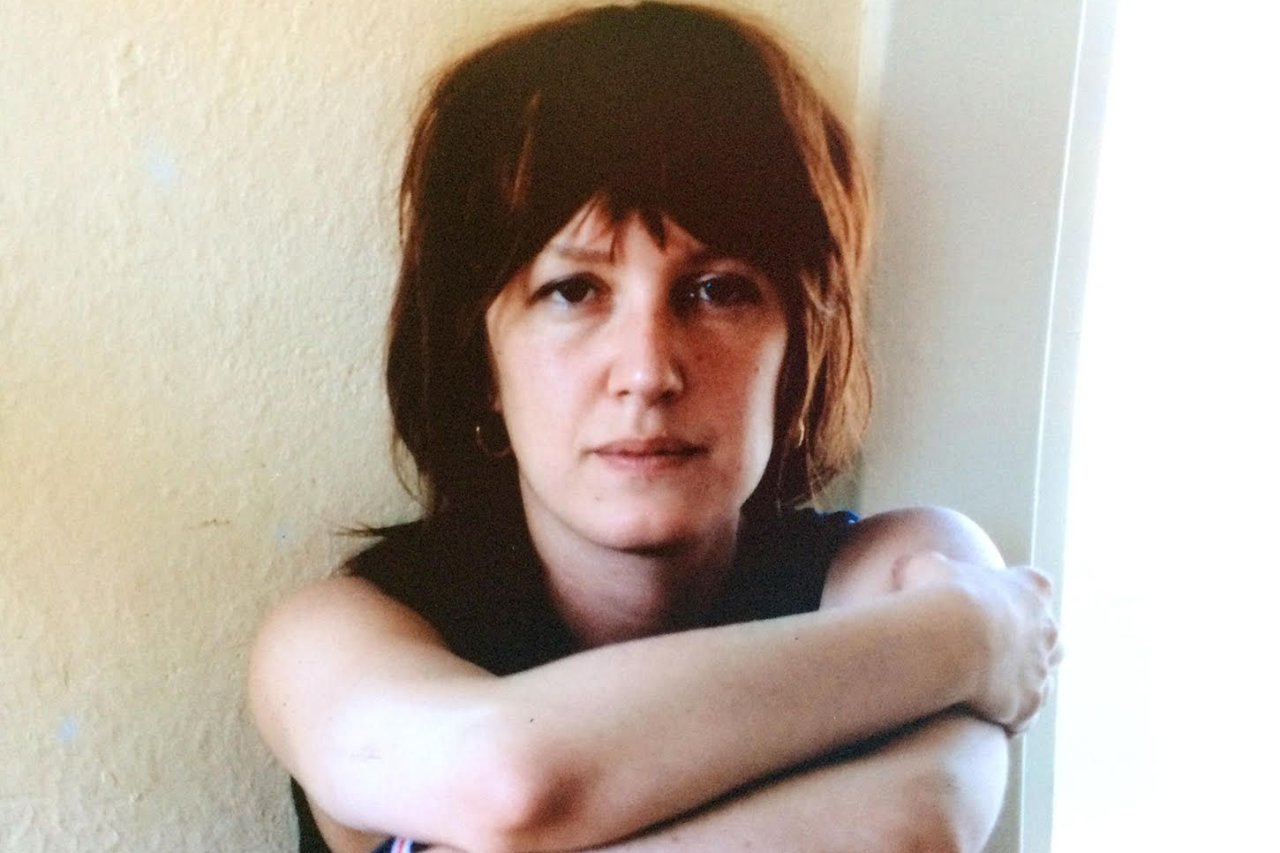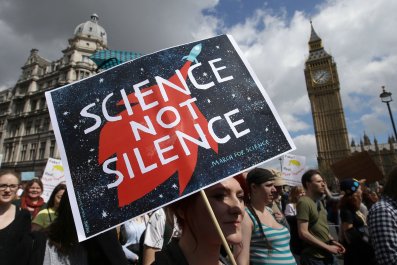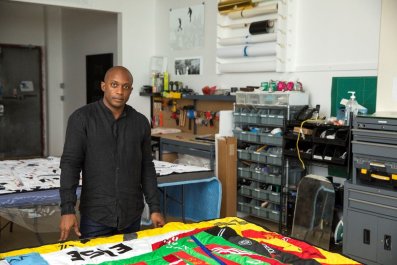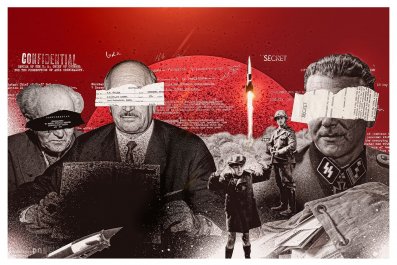When Eve Babitz was a young Los Angeles socialite, dropping LSD with Yoko Ono at a party thrown by Andy Warhol, draining cocktails at the Chateau Marmont, writing for Rolling Stone, sleeping with Jim Morrison and, once, playing chess in the nude across from Marcel Duchamp, she didn't so much feel that she was invincible or immortal—she was sure she would die before 30. For Babitz, the point of life was to fill it with as much pleasure as possible. "Death, to me, has always been the last word in people having fun without you," she wrote in her first book, Eve's Hollywood, published in 1974. Slow Days, Fast Company: The World, the Flesh and L.A. (1977) and Sex and Rage (1979) followed.
After the intoxication of the '60s and '70s, however, came the sobriety of the '80s and '90s, and Babitz, finding herself still very much alive, had something to say about it in L.A. Woman (1982), the newly reissued Black Swans (1993) and the nonfiction Two by Two: Tango, Two-Step and the L.A. Night (1999). The L.A. of those years was roiled by the tragedy of the AIDS crisis and 1992's race riots.
A freewheeling, quintessentially Babitz character runs through Black Swans' stories, one that bears a striking resemblance to Babitz (as do all of her female protagonists), but she is not, as the author carefully notes, autobiographical. "My life and the life of my characters are often conflated, but they aren't the same," Babitz said of her fictive memoirs. "The characters I write about are what I focus on, not my own life. That belongs to me."
Babitz hasn't published a book since 1999, but with each reissue (Black Swans is the sixth) come new fans. "I write when I had something to write about," said the 74-year-old, who still lives in Hollywood and vows never to leave. "Maybe I will again." Babitz denied she was a recluse—a reputation fueled by her refusal to make author appearances or even do phone interviews—but she did agree to the following email exchange.
In your '70s work, you wrestle with whether it's possible to live life by simply having fun, without having to grow up or do the serious work of adulthood. Have you been able to accomplish that?
Wow, I was wrong about that, wasn't I? The truth is you have to grow up. As much as I fought it, there it is…life. And if you don't grow up, the world grows up around you, and then you still have to grow up anyway! I don't think I've avoided any boring aspects of being an adult, and if I have, I don't know what they are!
In the story "Free Tibet," you address the question of what might be too much fun. Your main character shacks up with a lover at Hollywood's Chateau Marmont, and the two lose track of time together while the riots in response to the acquittal of the officers who beat Rodney King rage outside.
When I wrote Black Swans,I felt there was no turning back. The party had gone on for too long and, like all parties do at the end, the magic goes out. Eventually the sun comes up and you look around and see dirty ashtrays, spilled drinks, empty bottles and dead flowers. Of course I knew that time had passed and we had changed decades; life had gone on, but the riots were a defining moment for us, and certainly for people in L.A. Fun was no longer the objective. To me, it seemed the time had come for awareness, grace, respect and dignity.
How did you toe the line of having too much fun in your own life, and when, if ever, do you think you crossed it?
The characters I write about are what I focus on, not my own life per se. That belongs to me. In terms of crossing lines…the problem with that is the only way you know you've crossed the line is when you actually do it…. And, then it's too late, the line has been crossed.
The stories in Black Swans contain anxiety about the political landscape shifting in a major way, with Ronald Reagan's presidency. What did the '80s and '90s represent to you? Was it a wake-up call, and do you think we're we in the middle of another?
To me, the '80s were all about money—who has it and who doesn't, and why do they and don't they. People started measuring people by their bank accounts. That was very different from anything in my life. Of course, it's more somber, the world is more somber. I hope we're in the middle of a wake-up call, or at least I don't know, yet. That's the scary thing about a wake-up call, you don't know that it's happening!
The characters in your books often refer to their own beauty and sexuality, much as your own beauty and sexuality were commented upon. Did you find that people underestimated or undervalued or resented your talent because of that?
Oddly enough, I have never had any idea of people's expectations of me. And I don't know if anyone resented me because I was a writer. I don't even know if I was beautiful. I just felt like I was….maybe, that's enough to be beautiful. And, as I've said many times before, everyone is beautiful when they're young—that's the whole point of being young!
You were celebrated long before social media. Do you think it would have changed your view of yourself?
Absolutely! There is no more mystery, no more romance—even that word is probably dead. Everyone looks and dresses alike. No more individuality. Selfishly, I'm glad that more people can find my reissued books, but other than that, I hate social media. People don't know how to talk to each other anymore. The relationship is only to a screen, not to a real person. I could go on about this forever, but I won't.
Any writing on you typically includes a list of some of your notable lovers. How do you feel about having your sexual history discussed?
Well, by now I'm used to it. I guess it's my fault, because in Eve's Hollywood I wrote about it. But at the time, it didn't seem like a big deal. It didn't seem like "history" to me. It was my life. It never occurred to me that it would last and be read all these years later. And, remember, in the other books, those women are characters. I still have some secrets!
How do you feel about the current reckoning with sexual abuse in Hollywood? Did you realize the extent to which it was an issue when you were younger, among actors, musicians and artists?
That's a much longer discussion. That was embedded in the culture at the time, on both sides. It was a complicated time, I realize now, but for me, and I'm only speaking for myself, I never wanted anything in exchange. Sex was just it. I was never going to get a record jacket cover or book deal if I slept with anyone.
What advice would you give, decades after the publication of Sex and Rage, to "young ladies eager for a good time"?
I don't think I can give advice, other than be yourself and don't doubt yourself and don't second-guess yourself. But I don't feel I'm in any position to give advice to anyone in 2018. It's not my world anymore.















